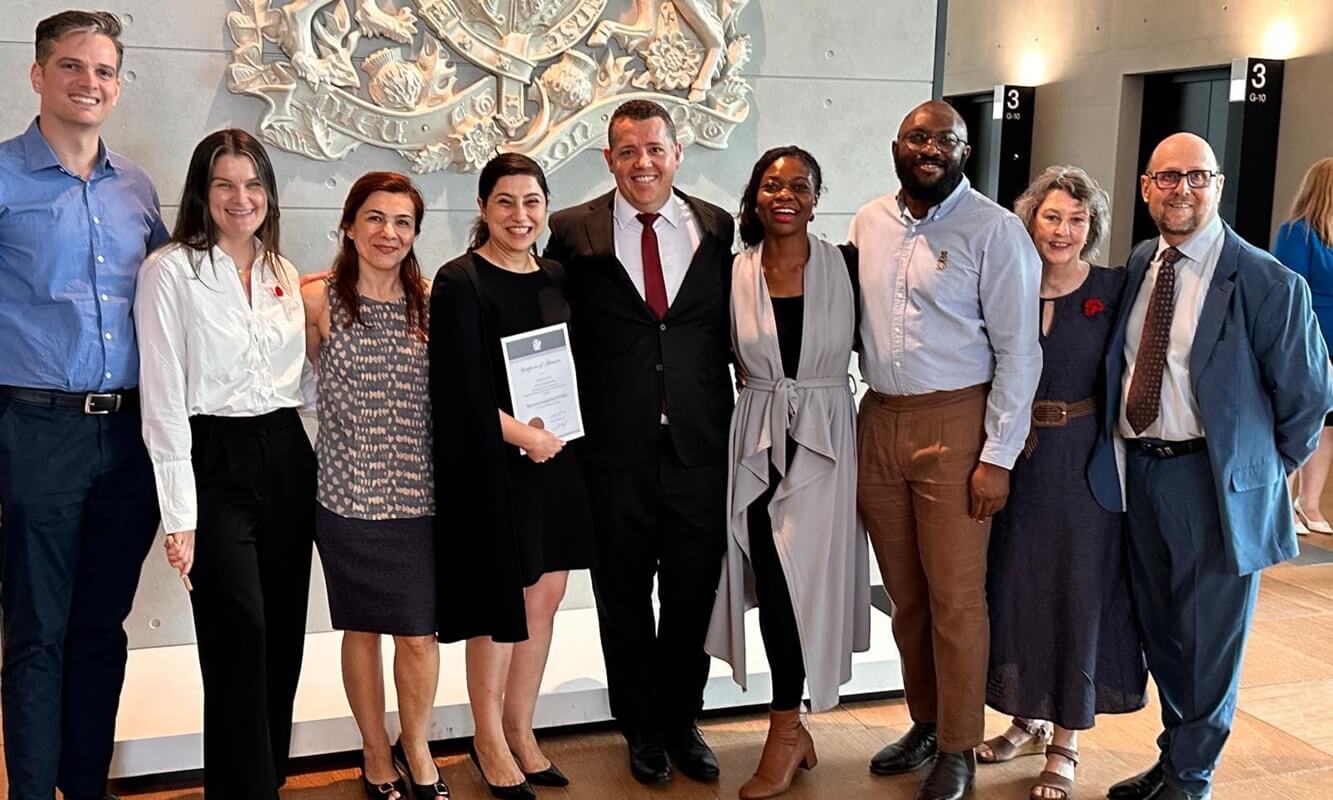Modern litigation, and in particular complex commercial litigation, relies increasingly heavily on experts. Experts may be engaged for several purposes:
- to assist a party to understand or develop a case, either before proceedings commence, or in the early stages of litigation. A party may engage a geotechnical expert (for example) to help it understand the likely cause of a subsidence, and the proper parties to be sued.
- to appear as an expert witness for a party, whether in a court proceeding, arbitration, or some other tribunal or proceeding.
- to act as a “dirty” expert, to give behind-the-scenes advice to a party about another party’s evidence or expert witnesses.
Different considerations apply when considering who to engage for each purpose. An expert who is intended to give evidence has particular obligations of independence, and is required to comply with rules in each jurisdiction governing how expert evidence is given.
This paper will focus primarily on experts giving evidence in courts, arbitrations or other tribunals, and the considerations which should be borne in mind in choosing such an expert witness. It will deal with three main issues:
- what is the relevant expertise or field of specialised knowledge for which the expert is required?
- is the evidence legally admissible as expert opinion evidence?
- whether and how the expertise or field of specialised knowledge will, as a practical matter, assist your client?
Keeping those issues in mind will also help when selecting a “dirty” expert, or an outside adviser. In the case of the “dirty” expert, the value of such an expert is in the critique which they are able to give of another’s party’s evidence. That necessarily entails precise consideration of the field of knowledge, the practical utility of the evidence, and its admissibility. Similar considerations arise when asking another outside expert to assist in preparing for a proceeding.
Relevant expertise or field of knowledge
Opinion evidence will be required when it is necessary to prove (or disprove) a fact or element of the cause of action that is not capable of being proved by direct evidence (that is, by some person’s observation, or by a document or thing). An expert can give opinion evidence for which that expert is qualified in an area of expertise.
An area of expertise is a field of specialised knowledge or opinion. In Makita (Australia) Pty Ltd v Sprowles,1 Heydon JA (with whom Priestley and Powell JJA agreed) noted that a field of specialised knowledge is based on a person’s training, study or experience.2 The question is simply whether the purported expert has gained knowledge on the relevant topic as to be able to provide an expert opinion on that topic.
The decision whether to engage an expert then will depend on whether it is necessary to obtain the opinion of a person qualified in that particular field of expertise.
Admissibility of evidence
The question of admissibility of the expert evidence overlaps with whether the evidence is one which requires the court to obtain opinion evidence in a particular field of specialised knowledge.
Importantly, there is no requirement for the knowledge to have been gained academically or even professionally. Nor is there a requirement that the knowledge be of a scientific or technical nature.3
In many cases it may be relatively simple to determine that something is within an area of expertise. For instance an engineering issue may be within the area of expertise of a structural or mechanical engineer, or a medical issue may be within the area of expertise of an orthopaedic surgeon or psychiatrist.
But there are other areas where it may not be immediately obvious that someone is an expert or that the matter is within the scope of expert opinion. For example:
- A heroin addict was, through their practical experience, able to provide expert opinion on whether or not a particular substance was heroin;4
- The former president of the Australian Federation of Islamic Councils was determined to be able to provide opinion on the history and practice of Islam;5
- A former professional rugby league coach and player could give evidence on the nature and danger of a spear tackle;6 and
- An experienced First Nations tracker could compare footprints.7
Equally, there are areas where someone may be uncontroversially highly qualified, but they give opinions that are outside the scope of their specialised knowledge:
- An accountant with over 40 years’ experience, did not possess a relevant specialised knowledge on the conduct of company directors merely because he had observed the conduct of competent company directors over many years;8
- A highly experienced American securities lawyer was unable to proffer an expert opinion on investor behaviour;9 and
- A veteran handyman could not give an expert opinion on engineering issues.10
Moreover, there are cases where the issue in question is not something that is really the proper subject of specialised knowledge as not being part of a body of knowledge:
- A professor in politics, who studied political extremism, was unable to give expert opinion on the ideological motivations for a crime because the Court was not satisfied that this was really a subject of specialised knowledge, as it was, at best, a nascent area of expertise;11
- The possibility of impaired memory due to alcohol and substance abuse is something properly within the knowledge of ordinary people;12
- It was unnecessary for engineering expert evidence to be admitted to determine whether or not as a matter of fact, a semi-trailer crossed onto the opposite side of the road;13 and
- A psychologist cannot give expert opinion on matters within normal human experience.14
Practical utility of the expert evidence
The practical considerations of whether to instruct an expert are informed by the above legal factors.
The first question that you must ask is whether the relevant fact in issue is one that would be informed by an expert’s specialised knowledge. In other words, you must consider whether this is a matter that is instead within the common human experience. If it is, then you should not instruct an expert.
The second consideration is that you must give great thought to exactly what the area of specialised knowledge is. This is something that may be informed by your theory of the case. By way of example, let’s say you are bringing a claim because of a leaky roof. The way in which you characterise the nature of this claim may inform what kind of expert you wish to instruct.
On one view, you may attribute the cause of the leaky roof to be because of defective building works, in the manner that the house was instructed. On this view, you may seek to instruct building and plumbing experts that can testify to the proper manner in which that type of roof should have been constructed, and can demonstrate how the way in which the roof was built in actuality departs from that proper approach.
On another view, you may characterise the cause to be the way in which the house was originally designed. On this view, you may seek to engage engineering or architectural experts, this time, with the intent of demonstrating the proper method of designing a house, and again, how the design works in this case departed from that standard and caused the leak.
It is only after you answer these questions, that you can consider who is the proper expert to instruct.
In answering those questions though, it would usually be useful to obtain the benefit of an expert at an early stage (ie for the first of the purposes identified above). That person can assist you and your client to understand what in fact is the likely cause of the leaky roof. That will help you to direct your enquiries further, and will help you decide what is the expert evidence (if any) you need to obtain for the trial.
It will clarify your thinking about the relevant facts or elements of the cause of action that you need to prove, and how you need to prove them. Once you have done that, it is much easier to determine whether a (and if so, what) field of specialised knowledge is relevant.
In deciding then to engage an expert witness, you must then determine who is the person best placed in that field of specialist knowledge to give evidence. That could depend on many factors:
- who is well-qualified.
- who is in fact available and able to give evidence (that may include where the person is based, what they charge, and when they can provide reports and other assistance).
- whether the person has faced criticism about their evidence before.
- the person’s manner. That may include not only how they are likely to be perceived in the court or tribunal, but also whether you and your counsel are able to develop the necessary rapport with them.
The best candidate is not necessarily the person with the most prestigious academic accolades, or depending on the field of knowledge, a person who needs any academic or even professional experience at all.
Finally, it is paramount that in instructing an expert that you comply with the requirements for instructing expert witnesses in the jurisdiction in which the case is being run. For instance, if this is a civil claim in a State court, you must ensure that you instruct the expert in accordance with Part 5 of Chapter 11 of the Uniform Civil Procedure Rules 1999 (Qld).
It is especially important that you take great care in articulating the precise factual assumptions that are to underpin the report, set out exactly on what you wish the expert to opine, enclose all relevant documents, and ensure the expert is fully aware of the Expert’s Code of Conduct and they set out this understanding in their report.
Footnotes
1 (2001) 52 NSWLR 705, 743-744 [85] (Makita).
2 Makita [79].
3 Honeysett v R (2014) 253 CLR 122,[23].
4 Price v R [1981] Tas R 306.
5 R v Taleb [2019] NSWSC 396.
6 Dickson v Northern Lakes Rugby League Sport & Recreation Club Inc (No 2) [2019] NSWDC 433, affirmed in Dickson v Northern Lakes Rugby League Sport & Recreation Inc (2020) 103 NSWLR 658.
7 R v Harris [1997] 7 NSWLR 1.
8 Australian Cement Holdings Pty Ltd v Adelaide Brighton Ltd [2001] NSWSC 645.
9 Allstate Life Insurance Co Ltd v Australia & New Zealand Banking Group Ltd (1996) 64 FCR 79.
10 Jones v Multiple Sclerosis Society of Victoria Ltd [1996] 1 VR 499.
11 R v Fleming [2023] NSWSC 560.
12 Farrell v R (1998) 194 CLR 286.
13 Clark v Ryan (1960) 103 CLR 486.
14 R v Massey (1994) 62 SASR 481, 487.















Share this article